Take Back Your Focus – With Help From Johann Hari
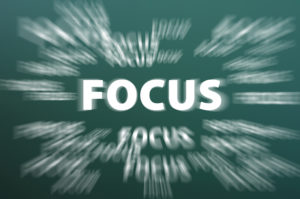 Like everyone these days, I have a lot of things on my mind. But I’m having a hard time staying with any single one. I jump around. I feel unsettled. Distracted. Sound familiar?
Like everyone these days, I have a lot of things on my mind. But I’m having a hard time staying with any single one. I jump around. I feel unsettled. Distracted. Sound familiar?
I see this same distraction in many of my ACT/SAT students. When we first begin our sessions together, I ask them how they approach reading comprehension passages. The most common answer is: “I skim.”
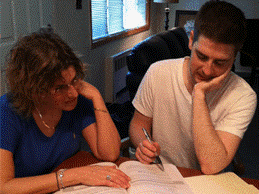 “What do you mean ‘skim?’” I ask. (As a former psychotherapist, I can’t help but dig deeper.)
“What do you mean ‘skim?’” I ask. (As a former psychotherapist, I can’t help but dig deeper.)
“You know,” they say, “skim.” (Like duh!)
I studied at Antioch University LA with many women I greatly admire, one of whom is Sherry Danner.
(I know. It may feel like I’m jumping around right now, but stay with me … and with Sherry. It’ll all make sense soon.)
We did an interview together a while back and Sherry has personally coached me on putting into place some of the most challenging—and necessary—boundaries I’ve ever had to create in my 61 (almost 62) years.
She also writes a hellova newsletter. In a recent post, she talked about skimming and described her recent challenges with reading:
 “I used to read for hours. It was one of my greatest pleasures in life. I still buy books. I love them. I collect them. I open them. I WANT to read them. I start to read them. And then within the first few pages, no matter how great the book, my brain starts to flit about:
“I used to read for hours. It was one of my greatest pleasures in life. I still buy books. I love them. I collect them. I open them. I WANT to read them. I start to read them. And then within the first few pages, no matter how great the book, my brain starts to flit about:
Do I like this, or should I be reading something better?
Oh, shoot. I never responded to that email. I’d better do that real quick. …”
I can soooo relate to this flitting brain!
Hari Is Deeply Troubled By A Societal Inability To “Simply Give Attention to Things That Matter”
Unfortunately, skimming and scanning has become a strategy that many of us use—well beyond the pages of a book.
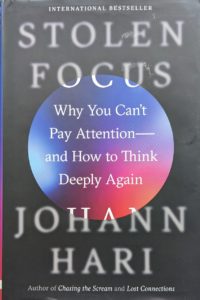 In that same post, Sherry mentioned Johann Hari’s Stolen Focus: Why You Can’t Pay Attention—And How to Think Deeply Again.
In that same post, Sherry mentioned Johann Hari’s Stolen Focus: Why You Can’t Pay Attention—And How to Think Deeply Again.
I picked up a copy and am so glad I did!
Hari was deeply troubled by what he believed was a societal inability to “simply give attention to things that matter.” He saw this phenomenon all around him. In people he loved. Certainly in himself. So he traveled the world, interviewing experts on attention and asked them what was happening—and what we can do about it. He compiled their answers based on tons of research, weaved through his own personal experiences, and voila—his latest book!
Stolen Focus helped me see that my general feeling of ungroundedness is largely due to a corresponding decrease in my ability to pay attention—and to the ease and frequency with which I become distracted.
Most of us are constantly interrupted or are interrupting ourselves. Our brains move from one thing to the next, as we check emails, texts, newsfeeds, Facebook, Twitter, Instagram … (While writing this post, I must have checked my emails a few dozen times!) It’s exhausting!
Once we lose focus on a task, it is very difficult to get back on track. A study by Dr. Michael Posner at the University of Oregon found it actually takes 23 minutes to regain original focus. Just think of all that wasted time!
People May Believe They’re Working on Several Tasks at Once, But They’re “Juggling”
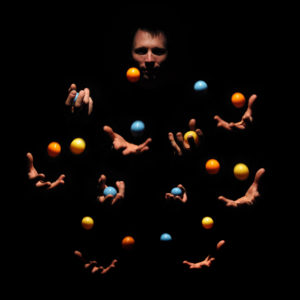 It gets worse. Hari warns that when patterns of interruption and distraction continues over time, they “scramble your ability to figure out who you are and what you want.”
It gets worse. Hari warns that when patterns of interruption and distraction continues over time, they “scramble your ability to figure out who you are and what you want.”
I know. I know. That sounds extreme. But doesn’t it also feel just a tiny bit close to home?
Before we all just crawl back into bed and call it a day, here are a few pieces of info from the book that I found empowering.
Empowering takeaway #1: Multi-tasking is a myth!
I can’t tell you how validating and freeing that 4-word sentence is for me!
Living in a world that increasingly values—and expects—multitasking, I’ve often felt deficient because I just can’t multi-task! But I am not alone—neither can you.
When Hari spoke with MIT Professor Earl Miller, he learned that our brains are only capable of producing “one or two thoughts” at the same time.
Yet “instead of acknowledging our limitations and trying to live within them, we have—en masse—fallen for an enormous delusion.” The delusion: multi-tasking.
 People may believe they’re working on several tasks at once, but, according to Professor Miller, they’re “juggling. They’re switching back and forth. They don’t notice the switching because their brain sort of papers over it … what they’re actually doing is switching and reconfiguring their brain, moment to moment, task to task—[and] that comes with a cost.”
People may believe they’re working on several tasks at once, but, according to Professor Miller, they’re “juggling. They’re switching back and forth. They don’t notice the switching because their brain sort of papers over it … what they’re actually doing is switching and reconfiguring their brain, moment to moment, task to task—[and] that comes with a cost.”
All this switching degrades your ability to focus and makes you slower. There’s also “The screw-up effect.” When you switch back and forth between tasks “errors that wouldn’t have happened otherwise begin to creep in.”
So … I will no longer judge myself because I’m a one-thing-at-a-time kinda woman! But how to remain a one-thing-at-a-time kinda woman when there’s so much going on around me?!?
Empowering takeway #2: It’s not your fault! (Or Hari’s! Or mine!)
Hari shares a great deal about his own propensity toward distraction—and how he used to blame himself for it: “I would say: You’re lazy, you’re undisciplined, you need to pull yourself together. Or I would blame my phone, and rage against it, and wish it had never been invented.”
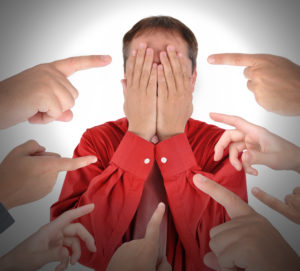 Hari decided something had to change. So, he took with him a dinosaur phone and computer, both of which could not access the internet, and booked a small room in Provincetown for three months.
Hari decided something had to change. So, he took with him a dinosaur phone and computer, both of which could not access the internet, and booked a small room in Provincetown for three months.
It worked–while he was in P-town. He had some (major) withdrawal symptoms but slowly regained his ability to focus deeply, to think deeply, to sit for hours with a book!
But when he returned home … everything fell apart.
According to James Williams, a long-time senior strategist for Google, that’s because Hari’s digital detox was “not a solution, for the same reason that wearing a gas mask for two days a week outside isn’t the answer to pollution. It might, for a short period of time, keep, at an individual level, certain effects at bay. But it’s not sustainable, and it doesn’t address the systemic issues.” It amounts to “pushing it back onto the individual.”
In my day, we called that blaming the victim! And there’s a lot of that going around out there!
Cruel Optimism
For instance, there’s the concept of “cruel optimism.”
“This is when you take a really big problem with deep causes in our culture—like obesity, or depression, or addiction—and you offer people, in up-beat language, a simplistic individual solution. It sounds optimistic, because you are telling them that the problem can be solved, and soon—but it is, in fact, cruel, because the solution you are offering is so limited, and so blind to the deeper causes, that for most people, it will fail … and it ensures that when the small cramped solution fails … the individual won’t blame the system—she will blame herself.”
 Just think of the dieting industry—and the dieting mindset: Eat no carbs! Eat low fat! Fast intermittently! Go Mediterranean! Go raw! Lose the gluten!
Just think of the dieting industry—and the dieting mindset: Eat no carbs! Eat low fat! Fast intermittently! Go Mediterranean! Go raw! Lose the gluten!
Easy! Right?
Anyone who’s been on a diet and then fallen off the wagon knows all about self-blame and berating oneself for lack of discipline, self-control, yadda, yadda, yadda. But when 95% of people who’ve lost weight on diets regain the weight within 5 years, according to Hari … maybe there are reasons beyond individual failings to explain.
How does this relate to the fact that so many of us are having trouble with focus and attention?
Social Media Companies Want You to Spend More and More Time Looking at Your Screen
Tristan Harris another former Google exec (whom you may remember from The Social Network) studied magic as a kid. He learned that the key to magic is “learning to manipulate someone’s attention without them even realizing it.”
Magicians play to people’s weaknesses, Hari states, “to delight and entertain us. As Tristan grew up, he became part of another group of people who were figuring out our weaknesses to manipulate us—but they had different goals.”
 Social media companies want you to spend more and more time looking at your screen. The more time you spend, the more ads you see, the more money in their pockets.
Social media companies want you to spend more and more time looking at your screen. The more time you spend, the more ads you see, the more money in their pockets.
They want to distract you from your tasks, want you to engage in the endless scroll. And want you to take responsibility for your own inattention—even though they are actively working to co-opt it.
It is not the smartphone itself that is to blame. It’s that “the phones we have, and the programs that run on them, were deliberately designed by the smartest people in the world to maximally grab and maximally hold our attention.”
I don’t know about you, but I am not all that tech-savvy, and I am not one of “the smartest people in the world.” How can I—as an individual—hold my own against Silicon Valley?
Hari Offers Solutions!
Of course, there are individual steps you can take. Self-restricting. Products you can buy to lock your phone or restrict your access to the internet. Going off to P-town for 3 months!
But individual solutions will fall short against the behemoth that is social media. We need to band-with (pun intended) each other!
“The way our tech works now to corrode our attention was and remains a choice—by Silicon Valley, and by the wider society that lets them do it. Humans could have made a different choice then, and they can make a different choice now … you could design the technology not so that it pulls people away from their deeper and more meaningful goals, but so that it helps them to achieve them.”
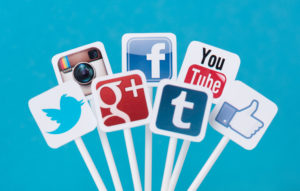 There are ways to disincentivize current business models and build incentives for models that support our collective attention and health.
There are ways to disincentivize current business models and build incentives for models that support our collective attention and health.
Tristan Harris (our friend above, formerly from Google), Aza Raskin (co-founder of the Center for Humane Technology), and Shoshana Zuboff (Harvard professor and author) share with Hari their believe in the need for a ban on what they call surveillance capitalism: “ban any business model that tracks you online in order to figure out your weaknesses and then sells that private data to the highest bidder so they can change your behavior.”
Sounds impossible—or at least pie-in-the-sky right? Hari (and I) thought the same thing. But there are lots of precedents for these types of regulations. Lead paint, for example, was in many American homes until it was discovered to damage children’s (and adult’s) brains. That discovery led to a ban. When CFC’s were discovered to ban destroy the ozone, it, too, was banned.
Hari envisions social media subscriptions taking the place of surveillance capitalism, incentivizing these media companies to work for our interests—not against them.
Some Resources
 Is this an uphill battle? Yes.
Is this an uphill battle? Yes.
In these troubling times, with so many competing issues that need our attention, do we have it in us to take on one more? We must. Hari has included a resource appendix in Stolen Focus to help readers get started.
Here are a few places from that list where you can learn more and, hopefully, become involved:
Center for Humane Technology: https://www.humanetech.com
THIS is an amazing site! I recommend taking some time with all they have to offer, but for a quick start—and some easy and empowering suggestions—go straight to this page: https://www.humanetech.com/take-control.
Check out the Avaaz campaign to detoxify social media algorithms: https://secure.avaaz.org/campaign/en/detox_the_algorithm_loc/
Visit Stop Hate for Profit, “an ongoing campaign to hold social media companies accountable for hate on their platforms”: https://www.stophateforprofit.org
As always, I’d love to hear from you. How does the idea of “stolen focus” resonate with you? How have you managed to “think deeply again” (or plan to)? Please let me know in a comment or email.
See you soon!
XOXO
Diane

If You Know Another Amazing Woman (Or Person Of Any Gender!) Who Might Like To Join Us At WomanPause, Please Forward This Link: WomanPause
For one-on-one support in uncovering your voice on the page, please consider working with me! I’d love to join you on your journey!



Diane, thanks for a brilliant take on this important topic that we are all struggling with at some level. And thanks for the shout out and reference to my newsletter!!
When I came across this book, I found so much of the information validating and encouraging, just like your article. I’ve made some shifts personally, but as always, the first one was the release of thinking something is wrong with ME. From self-compassion, I was then able to access the part of my brain that offers up gentle solutions. One thing I did was invest in prescription reading glasses. I felt SO ridiculous having 3 pair (distance, computer, now reading) but whatever! I wear one and carry two around with me now. And I can READ again. I am enjoying it like I haven’t in years. Allowing ourselves to be a bit ridiculous helps with most things, too 🙂
Thank you, Sherry, and yes! “the release of thinking something is wrong with ME”
Congrats on the new glasses!! Isn’t it funny (not so funny) how we resist those “gentle solutions”? I did the same thing before I (finally) got a hearing aid!
Wonderful, wonderful column today. I relate to every aspect of this. Thank you, Diane – I’m going to get his book.
A couple random observations: 1) last night I went to dinner at the house of some friends, who have a 14 year old son. He sat with us the entire evening, not on his phone, taking part in the conversation, asking questions, long deep meaningful conversation. He’s always been this way. Every time I see this boy I compare the rest of the world to him.
2) The thing I love most in the world is to lie on my couch and read. For years –decades?–I’ve read before going to sleep. And I read only a few pages, fuzzily. And this has made me so, so sad, and so ashamed. But a year ago I made one small change (for me, it’s the small changes that are actually the huge ones) to my early morning routine: Wake up. Make The Cup of coffee. Sit on the porch and do a) Wordle and b) Spelling Bee up until Amazing. At this point, for decades, I would open my laptop and check the endless, endless emails. The change I made was to “read for ten minutes.” A book. Not a magazine, not the news, a book. I figured it would take me months to incorporate this change and make it stick. It took five minutes. I will never, ever go back. So far this year I’ve read 30 books, effortlessly and with total joy and focus.
Thanks for a wonderful column.
Oh, Alison! Thank you!
And how much do I love your observations? That kid! 14 and engaging with people and not his phone?!? There is hope for us all!
And thanks so much for that morning reading suggestion–I am going to start tomorrow morning. I’ll let you know how it goes!
I’m reading How to do Nothing: Resisting the Attention Economy by Jenny Odell right now, and she connects this idea to our lack of community, our environmental crisis, and the capitalistic idea to always be productive. It’s so well-researched and looks at everything from 1960s communes, ancient philosophers and performance artists, to bioregionalism. I’m loving it.
Thank you, Thatcher, for this recommendation! It sounds fascinating–I’m on it! I love this exchange–sharing resources and ideas! Greatly appreciated!
My messy desk speaks to my lack of focus though I blame it on lack of time. Recently I have become clear that I need to stop thinking I need to investigate every lead on psychoanalysis and the body that I see. But I will miss something I scream to myself. But I need time to focus on what I have in front of me before I add more. Thanks for this article that will help me!
Nicky! You’re speaking of the dreaded FOMO–fear of missing out! Oh, do I suffer from that–not because I feel the need to “fit in” but because I am terminally curious and want to learn and understand EVERYTHING!!! I think you and I are kindred spirits!
I think it is the media which is mixing me up more than anything else. I am exhausted by the repeated ads and the mess of it. The French have a word for it. One segment is about the war in Ukraine and the next is a movie star from Star Trek, the next is about a man who knifed 5 people in a park, then we hear about a sports legend who died, then the floods in Tennessee, next the fires in California, next a story of two girls denied prom and graduation because of their hair styles. REAL NEWS mixed with pop culture.
No wonder we are such a mess!
Such a good point, Joan! All that jumping around makes my brain feel scrambled!
This is a fascinating read- thank you for sharing your insights and resources on this urgent topic.
Thank you, Cynthia! Hope it was helpful!
I so need bullet points, and here they were. Thanks for the realistic insights and the links to helpful organizations, Diane. Johann Hari and you are a good team.
Thank you, Greta! I think we all need bullet points! (Maybe another symptom of the attention crisis? I know I’m feeling it!)